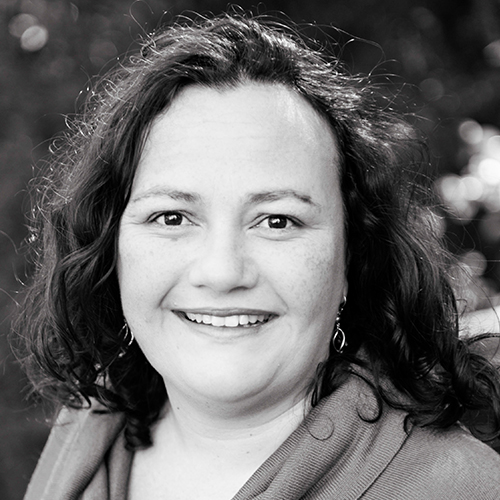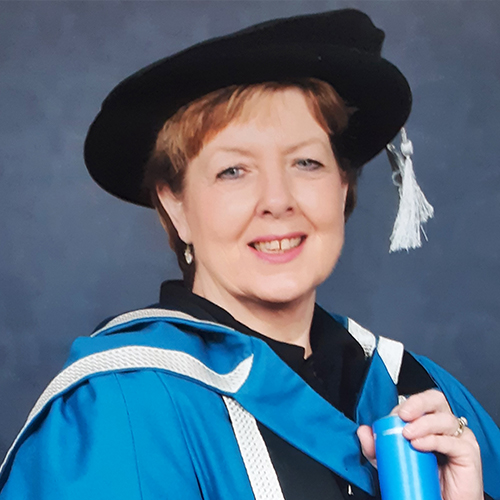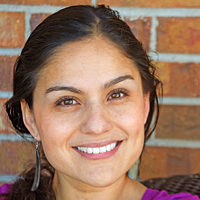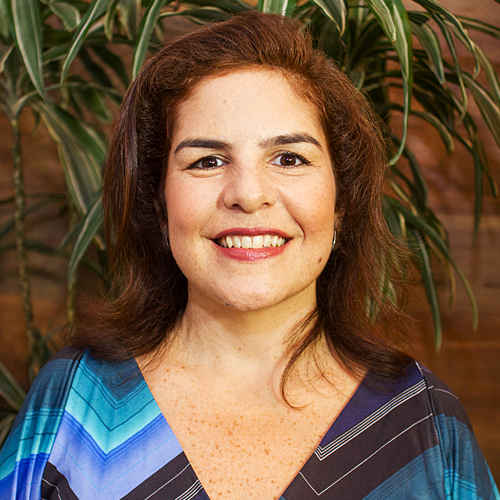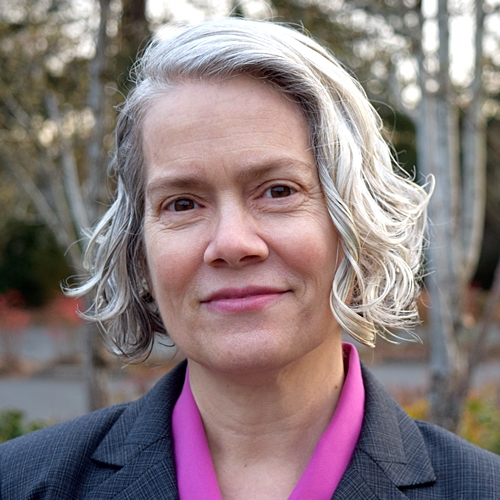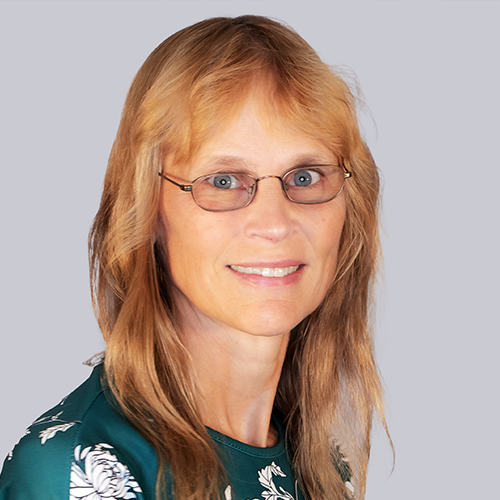 IBCLC Detailed Content Outline: Psychology, Sociology, and Anthropology Focused CERPs - Section V
IBCLC Detailed Content Outline: Psychology, Sociology, and Anthropology Focused CERPs - Section V
Access CERPs on Psychology, Sociology, and Anthropology for the IBCLC Detailed Content Outline recertification requirements. Enjoy convenient on-demand viewing of the latest Psychology, Sociology, and Anthropology focused IBCLC CERPs at your own pace.
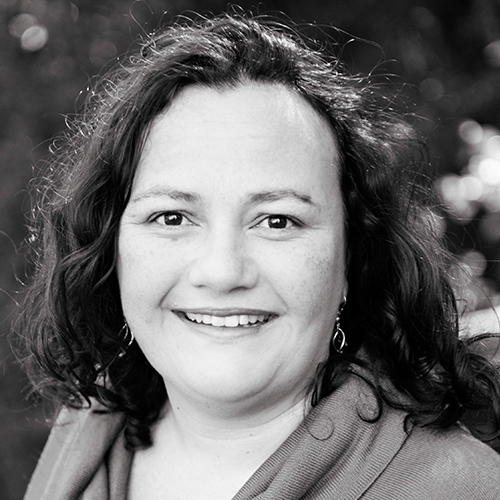

Debby Gould is a ‘BirthCare’ consultant providing education, support and counsel to women, partners, families and health professionals. Her goal is to provide transformational care to support education, empowerment and healing. She is an author of the book, ‘How to Heal a Bad Birth – Making Sense, Making Peace & Moving On’ and Co- Director of Birthtalk.org. Originally, a registered nurse she further trained and worked as a midwife, and is now a birth; educator, worker and counsellor, international author, speaker and mother of two children. For over twenty years she has supported women and men in the journey to healing after a traumatic birth, enabling women to make sense of their experience and its impact, offering hope for healing, and providing support and tools to process and make peace with what happened. She has shared in receiving the honour of a Lord Mayor’s Australia Day Community Achievement award for this work. Debby has been Birthtalk’s primary educator and facilitator of Healing From Birth meetings. She has presented for the ACM, Hypnobirthing Australia, Capers, Homebirth Australia, Australian Breastfeeding Association and various other maternal health and midwifery conferences. She guest lectures to Bachelor of Midwifery students at several Universities, and gives presentations for The Australian Doula College, Friends of the Birth Centre, Red Tent festival and other community groups. She also provides professional development for hospital midwives and doulas on the topic of Birth Trauma and how to support women to heal and have better births. She has co-written articles for Birthtalk’s blog “The Truth About Traumatic Birth” and has appeared in the media including radio, newspaper, birth and parenting magazines and podcasts and in the recent birth documentary ‘Birth Time’ as an experienced health professional’s voice to the issue of the importance of birth and traumatic birth.
Traditionally, an outcome focus has often been considered as the measure of ‘success’ in birth. When it comes to consent, that outcome tends to be ‘a live healthy baby’ and ‘the authority to do what is deemed desirable or necessary’. Considering an epidemic of birth trauma and the associations with the #metoo movement in birth, it is evident that this is not success for women and families. It is a narrow and damaging view that needs to be explored, understood, and changes made. The process of consent is valued, tangible, ethically and legally sanctioned, and provides key moments in care, to incorporate such change. A paradigm shift around consent is vital to address the experiences of assault and trauma in perinatal care. Conversation with families about consent is also a potential starting point to consciously address and intervene in damaging processes, and improve experiences, that could then be normalized and ripple out across all care delivery. Practical measures around consent and care processes will be explored with the aim to offer an intervention, when used consistently, to break the human mode of transmission of birth trauma, metaphorically, much like handwashing in our current pandemic.

View Details / Enroll
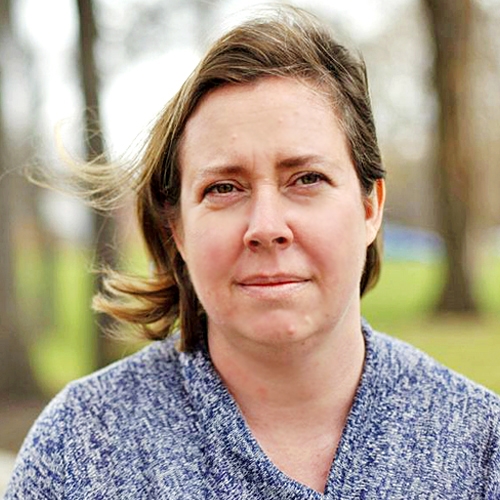
Facilitated Discussion on IYCF-E and the Role of the Lactation Professional

Michelle Pensa Branco MPH IBCLC is a lactation consultant and public health advocate. In addition to her clinical practice, which has included in-hospital, outpatient and private practice settings, she advocates for improved maternal-child health practices at the local, national and global level. She has a particular interest in the impact of trauma to breastfeeding families, models of peer support to improve breastfeeding outcomes and the application of health communication principles to the promotion and protection of breastfeeding. Michelle serves as the Director of Peer Support Programs and provides clinical lactation expertise for Nurture Project International, the only international NGO focused exclusively on infant feeding in emergencies. With Jodine Chase, she co-founded a Canadian non-profit organization, SafelyFed Canada. She is also an active member of the Ontario Public Health Association’s Breastfeeding Promotion Working Group. Michelle has previously served as the Vice-Chair of La Leche League Canada, the Communications Director for the Canadian Lactation Consultants Association as well as the Toronto Coordinator of INFACT Canada. When she is not travelling for work, Michelle stays close to home, living with her family just outside Toronto, Ontario, Canada.
Topic: Keeping the Fox Out of the Chicken Coop: Safeguarding Your Reputation Against Baby Feeding Industry Influence - [View Abstract]
Topic: Playing Well with Others: Collaborating in High Conflict/Low Trust Settings - [View Abstract]
Topic: Watching Our Words: Is Risk-Based Language Always the Right Choice? - [View Abstract]
In emergencies, breastfeeding saves lives - and yet, regardless of the location or type of disaster, breastfeeding and complementary feeding practices are eroded during an emergency. Infant and young child feeding in emergencies (IYCF-E) requires a multi-sectoral approach to meet the needs of both breastfed and non-breastfed children. Where do the skills of breastfeeding counsellors, educators and IBCLCs fit into the IYCF-E response? What competencies do IBCLCs need to provide clinical care in a humanitarian setting and how can IBCLCs obtain those (if they don’t already have them)? Bring your thoughts, experiences and questions and join us for a facilitated discussion about the role of skilled breastfeeding support in protecting infants and young children in emergencies.

View Details / Enroll
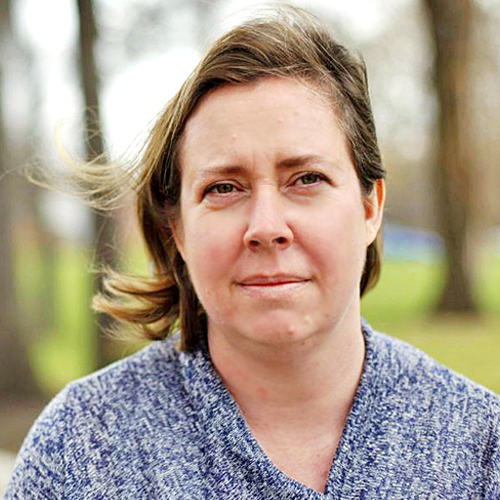
View Details / Enroll
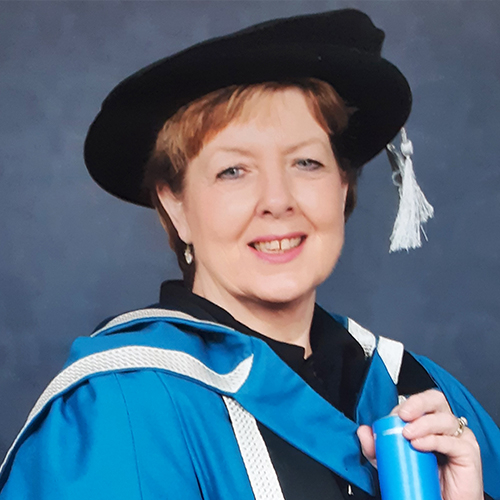
Family Centred Midwifery Care in Practice

First and foremost I am a mother, wife and latterly grandmother, my personal life has always largely informed my practice and I am always careful to remember that the women I meet are also like me in that they belong to a family.
I am a freelance consultant midwife one of the first in the UK and formerly employed at 2 very large and diverse maternity units. My career started in the 1970’s in nursing however midwifery was always my ambition and particularly the nurturance of midwifery led care.
I am a practicing psychotherapist interested in the emotional impact of childbirth; in part due to my own mothering experiences and research. I have worked closely with women to understand this phenomenon and researched emotional transition to motherhood.
Raising awareness for maternal mental health and particularly women surviving sexual abuse, I co-founded Sanctum Midwives campaigning on maternity care and sexual abuse. I have worked for many years raising awareness around the issues of maternal mental health and supporting both women and all those who work in maternity care situations. I believe positive mental health is the cornerstone to mothering and self fulfilment.
I have published widely in peer review journals but also in many books. My latest publication is ‘Understanding Anxiety, Worry and Fear in Childbearing Women’ which I edited and wrote 4 chapters. I am currently writing on the issues of child and adult female sexual abuse and its implications.
I care very deeply about women and their babies that they may come through their pregnancy and birth unharmed. I will continue to do this for the sake of midwives everywhere.
In 2016 National Health Service (NHS) England produced a report that is to be ground breaking in its ambitions and is part of the NHS Long Term Plan. The review team spent a whole year meeting with families, midwives, obstetricians and voluntary sector groups. This review team was led by Baroness Cumberledge, she understood the issues and was able to steer this work to its most important conclusion – personalised care centred around the woman and her family gives the best physical and psychological outcomes. The vision for maternity services across England is for them to become safer, more personalised, kinder, professional and more family friendly; where everywoman has access to information to enable her to make decisions about her care; and where she and her baby can access support that is centred around their individual needs and circumstances. If a small group of midwives managed the care of the woman, near to her home and she has access at all times to the information, choices about her birthing options then the benefits were huge. A reduction in premature birth, reduction in stillbirth, less risk of perinatal illness and of course reduction in maternal deaths. This is the reality for maternity services and now we are partway through implementation. I will present some of the realities for this model and the benefits for women and their families.

View Details / Enroll


Paulina is the mother of three multicultural Latino children and Project Director for Lifespan Local. Paulina earned her BS in Psychology from the Pennsylvania State University, a MS in Organizational leadership from the University of Denver and is completing her PhD in Health and Behavioral Sciences at the University of Colorado - Denver. Paulina has over 18 years of experience working with families with young children. As a Maternal Child Health specialist for Jefferson County Public Health, she developed a NICU follow-up home visitation program and the pediatric emergency preparedness plan, co-founded and coordinated the Conectando Network (former Adelante Jeffco), established community navigation and lactation support groups focused on the Latino Spanish speaking community, and lead other initiatives to support leadership and partnerships among communities and organizations. During the COVID-19 pandemic, she managed the new program Whole Community Inclusion to ensure the pandemic response and recovery implementation included health equity practices that recognize the needs and the strengths of priority populations in the county. Her areas of current work include promoting perinatal and infant mental health along the continuum of care; building community capacity to navigate health and education systems; facilitating organizational change to embrace linguistic and culturally responsive practices; and establishing community-placed participatory programs to strengthen communities. She likes to be with people, learn from and with others, and connect passions for meaningful work.
Topic: From the NICU to the home: mother’s experiences - [View Abstract]
Topic: Leadership Skills in Lactation: Make Extraordinary Things Happen - [View Abstract]
Topic: Liderazgo en Lactancia - Para Alcanzar Metas Extraordinarias - [View Abstract]
Topic: Nursing A Preemie, Perspectives For Lactation Supporters and Professionals - [View Abstract]
Lactation consultants would benefit from expanding their understanding of the impact of the NICU stay on the family; moreover, they would benefit from identifying the essential role they could play in assisting families to accomplish a positive, healthy, and smooth transition home.
Despite continuing efforts to reduce prematurely worldwide, a significant number of infants are born too early or in a fragile medical condition. Many of these infants experience a lengthy stay at the NICU. Lactation support varies across facilities, but families, especially mothers, develop strong connections with their lactation consultant. As one of their most consistent providers in the NICU, the lactation consultant has the opportunity to recognize families’ need for continuing support after discharge and strategies to protect the breastfeeding relationship, attachment, and mental health in the long term.

View Details / Enroll
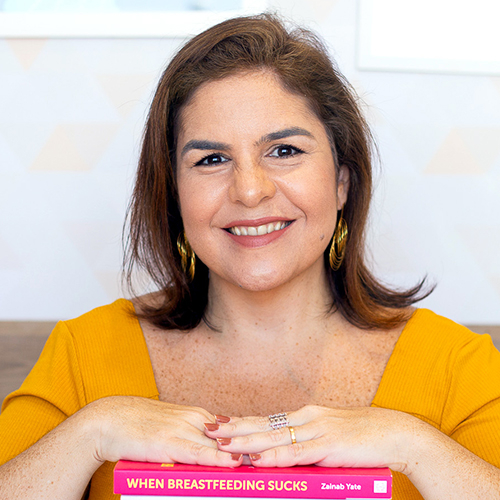

Bianca Balassiano has been working with families in private practice since 2008 as an IBCLC and perinatal psychologist/maternal-child health specialist. As a natural consequence of her professional background, has supported breastfeeding families into achieving individual goals while maintaining mental health and stimulating a holistic look towards the subject. Since 2014 is also working as an educator for healthcare professionals in one of the most recognized breastfeeding courses in Brazil, currently offering virtual classes and all over the country. Lives with husband and two children in Rio de Janeiro, Brazil. In 2020, she launched her first book aimed at families with the title "Gradual Weaning: How to Bring Your Breastfeeding Story to a Happy End".
Topic: Lactation After Bariatric Surgery: Physiological, Hormonal and Psychological Implications - [View Abstract]
Weaning is a very controversial topic when talking about breastfeeding. Nevertheless, a lactation consultant should be the professional addressed to guarantee mothers a good experience when finishing this process. When the child is 18 months or older, it is possible to develop a plan of gradual weaning that can adjust to their routine, and please both mother and child - respecting everyone's time and rhythm. When a mother is ready to move on and wishing to re-encounter herself, if we have a baby that is ready to communicate in other ways besides the breast, it is important to develop skills and a plan of action to give breastfeeding the beautiful end it deserves.

View Details / Enroll
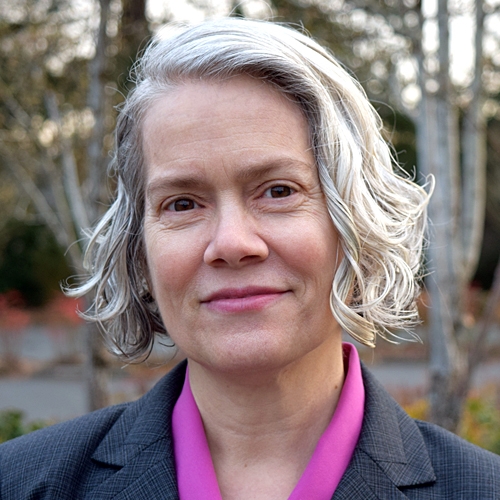
Heartbroken: Loss and Grief in the Perinatal Time Period

Cynthia Good, MS Clinical Psychology, is an International Board Certified Lactation Consultant, Clinical Counselor, author, consultant, and internationally recognized speaker. She is the Director of LifeCircle Consulting, LLC and is Certified in Acute Traumatic Stress Management. She is based in the Seattle, Washington, USA area, where she formerly served as an Adjunct Professor in the Department of Midwifery at Bastyr University where she taught counseling skills and is a therapist at Sandbox Therapy Group where she works with children, adults, and families. Cynthia has a strong interest in the emerging field of lactational psychology. She brings the evidence and insights of psychology and lactation consulting to her presentations, providing information and teaching skills that are essential to understanding and effectively responding to the complex psychosocial realities of families living in diverse contexts. The focus of her presentations includes communication skills and counseling techniques for perinatal care providers; equity, diversity, and inclusion; infant feeding rhetoric; perinatal mental health; perinatal loss, grief, and trauma; ethics; serving as an expert witness in lactation-related court cases; cultural competence and humility; vitamin D; and more.
Topic: Cultural Competence or Cultural Humility? A Roadmap for Lactation Specialists - [View Abstract]
Topic: Heartbroken: Loss and Grief in the Perinatal Time Period - [View Abstract]
Topic: It Wasn’t Supposed to be Like This: Traumatic Birth, Traumatic Stress, and Breastfeeding - [View Abstract]
Topic: My Brain is Doing What? Bias, Ethics, and the Lactation Specialist - [View Abstract]
Topic: Perinatal Mental Health Screening: A Primer for Lactation Specialists - [View Abstract]
Topic: The IBCLC as Expert Witness: Role, Strategies, and Resources - [View Abstract]
Topic: The Rug Pulled Out from Underneath Me: Depression During Pregnancy and After Birth - [View Abstract]
Topic: Unpacking the Invisible Diaper Bag of White Privilege: An Overview of Racial Inequities in Breastfeeding Support - [View Abstract]
Topic: We’re Human, Too: Hidden Dynamics in Our Communication with Clients - [View Abstract]
A variety of losses and types of grief are common in the perinatal time period. Some of these losses are specifically related to the reproductive and perinatal experience and some just happen to occur during pregnancy or after birth. Perinatal care providers who understand the diverse experience of loss and grief are better able to provide compassionate and effective care for the families they seek to serve. This presentation provides an overview of loss and grief, including the difference between bereavement, grief, and mourning; ambiguous loss; disenfranchised grief; prolonged grief; chronic sorrow; and depression. It also describes skills—such as companioning, screening, and referral—that are part of providing grief-sensitive care to expectant and new parents who are coping with loss and grief.

View Details / Enroll
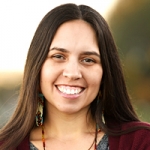
Historical Trauma, Racism and White Privilege: The Barriers to Breastfeeding Success

Camie Jae Goldhammer, MSW, LICSW, IBCLC, (Sisseton-Wahpeton) is a Clinical Social Worker and Lactation Consultant. Camie received her Master of Social Work degree from the University of Washington in 2006, specializing in Maternal Mood Disorders and the affects of complex/Intergenerational trauma on attachment, bonding and the parenting practices of Native families.
Camie is the founder and chair of the Native American Breastfeeding Coalition of Washington. She is also a founding mother and President-Elect of the National Association of Professional and Peer Lactation Supporters of Color. In 2013 she became Washington state's first Native American IBCLC. Camie is a consultant with CHEER and is also a part of the Center for Social Inclusion’s First Food Racial Equity Cohort. Recently she worked as a Campaign Director with MomsRising working to bring paid family and medical leave to Washington State which was signed into law in July 2017. She is now a member of the MomsRising breastfeeding team. She is a National leader on topics of racial equity and first food justice and recently launched the Indigenous Breastfeeding Counselor training.
Topic: Historical Trauma, Racism and White Privilege: The Barriers to Breastfeeding Success - [View Abstract]
Too often when discussing barriers to breastfeeding there tends to be a focus on education, poverty, and familial support. However, when we truly look at the causes of health disparities and inequities it is racism and discrimination that are at fault. For many of us, this can be a difficult realization and conversation to have. In this session, Ms. Goldhammer will discuss how Communities of Color are impacted by intergenerational trauma specifically when it comes to attachment and bonding as well as the role that racism and white privilege play in today’s modern day field of lactation. She will conclude with ways in which we can create meaningful impact and further advance racial equity in our field and most importantly in the communities we serve.

View Details / Enroll
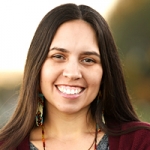
View Details / Enroll
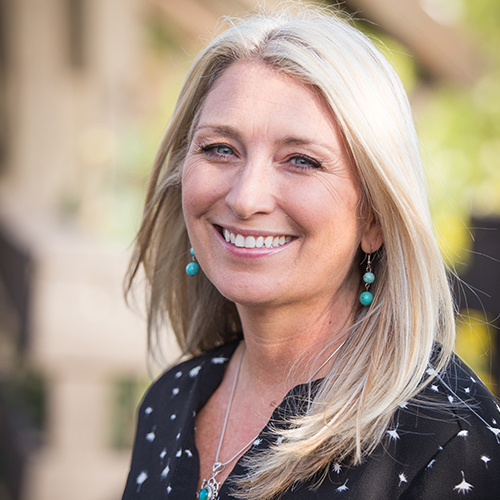
Hold the Phone! Diet Does Matter During Breastfeeding: Implication of Diet on Fatty Acid Composition and Other Nutrients

Laurel Wilson, IBCLC, CLE, CCCE, CLD is a TEDx and international speaker, author, pregnancy and lactation expert, and consultant. She served as the Executive Director of Lactation Programs for CAPPA, the Childbirth and Postpartum Professional Association for 16 years and now is on the Senior Advisor Board. She served on the Board of Directors for the United States Breastfeeding Committee from 2016-2019. She also is on the Advisory Board for InJoy Health. She owns MotherJourney, focusing on training perinatal professionals on integrative and holistic information regarding pregnancy, childbirth, and breastfeeding. She has her degree in Maternal Child Health: Lactation Consulting and is an internationally board certified lactation consultant. As the co-author of two books, The Attachment Pregnancy and The Greatest Pregnancy Ever, original Editor of the CAPPA Lactation Educator Manual, and contributing author to Round the Circle: Doulas Talk About Themselves, she loves to blend today’s recent scientific findings with the mind/body/spirit wisdom. Laurel has been joyfully married to her husband for nearly three decades and has two wonderful grown sons, whose difficult births led her on a path towards helping emerging families create positive experiences. She believes that the journey into parenthood is a life-changing rite of passage that should be deeply honored and celebrated.
Topic: Epigenetics and Breastfeeding: The Potential Longterm Impact of Breastmilk - [View Abstract]
Topic: Hold the Phone! Diet Does Matter During Breastfeeding: Implication of Diet on Fatty Acid Composition and Other Nutrients - [View Abstract]
Topic: Postpartum Mood Disorders, Breastfeeding and the Epigenetic Links from Past Into Future - [View Abstract]
Topic: Talk To Me: How Breastmilk Acts as a Communication and Gene Expression Tool Between Mother and Child - [View Abstract]
Topic: The Milk Sharing Conundrum - The Grey Area Between Scope and Need - [View Abstract]
Topic: The Placenta and Breastmilk-Unraveling the Mysterious World of the Intelligent Organs that Protect our Babies - [View Abstract]
Topic: Understanding Zika and Lyme and Breastfeeding - [View Abstract]
Topic: Unraveling the Mysteries of Human Milk: The Fascinating Role of Neohormones, Epigenetics, the Microbiome and More! - [View Abstract]
For more than a decade most lactation professions have been suggesting to families that diet matters very little in terms of breastmilk composition. We have told parents that they can essentially eat whatever they want, it does not matter to the bottom line. However, new studies imply that in fact, diet does matter in terms of the composition of fatty acids and essential nutrients available in milk that can potentially impact life long health. Studies also show that changes in diet can lead to gene methylation which impacts gene expression, as well changing the oligosaccharide profile which shapes the microbiome. This presentation takes you on a tour of some recent research finds to better understand how maternal diet (potentially prenatally through lactation) DOES play a role in breastmilk and how a parent’s diet can potentially influence a breastfeeding baby’s health.

View Details / Enroll
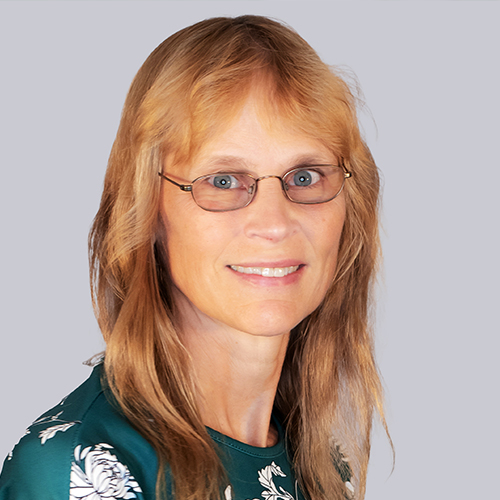
How Do You Respond to the Unusual? Case Studies of Uncommon Events in Birth

Bonnie Urquhart Gruenberg, CNM, MSN, CRNP, is the award-winning author of Birth Emergency Skills Training; Manual for Out-of-Hospital Midwives, and co-developer of the workshop by the same name. In 2023, her long-awaited seminal work, Birth Emergencies for Community Midwives, will come to press. She has caught more than 2,100 babies to date in the home, in a free-standing birth center, and in the hospital. She currently works for Wellspan Health in Lancaster County, PA. Bonnie has written and illustrated 12 books on topics ranging from midwifery and maternity care to wild horse management. She enjoys painting, photography, and hobby farming.
Topic: Placentas Behaving Badly - [View Abstract]
A seasoned midwife sometimes encounters unusual situations in clinical practice. In these unique case studies, we will consider the challenges of paravaginal birth, uterus didelphys, cervical myoma, and acute urinary retention in the second trimester.

View Details / Enroll


Duncan Fisher promotes and develops support for parents to advance child health and development. In the last year he has been working with breastfeeding researchers across the world and with the World Alliance for Breastfeeding Action to advance the idea of "breastfeeding as teamwork", following striking findings from research of the high gains from engaging with fathers and other family members. In UK he co-founded the Fatherhood Institute and for three years he served on the Board of the Government’s gender equality body, the Equal Opportunities Commission. He manages the website, FamilyIncluded.com, where all recent research on breastfeeding and fathers/families is reported. He initiated and currently manages a website for Cambridge and Princeton Universities reporting research on child welfare and development, ChildandFamilyBlog.com. He was awarded an OBE by the Queen in 2008 for his “services to children”. Duncan lives in Wales and divides his time between family work and work to support sustainable economic development in his home country.
Breastfeeding programmes that engage fathers are more effective than ones that only involve mothers and professionals. This accords with research that has shown that family is the main influence on breastfeeding. The way that families influence breastfeeding is diverse, depending on the make-up of the family, local culture and location (e.g. urban/rural). The influence of fathers is not necessarily intentional, but what fathers think and do influences the situation in almost every situation. In this presentation I will describe the principles of success that have been learned from programmes with published evaluations. These principles can be summed up in the phrase recently adopted by the World Alliance for Breastfeeding Action, "breastfeeding is teamwork".

View Details / Enroll



